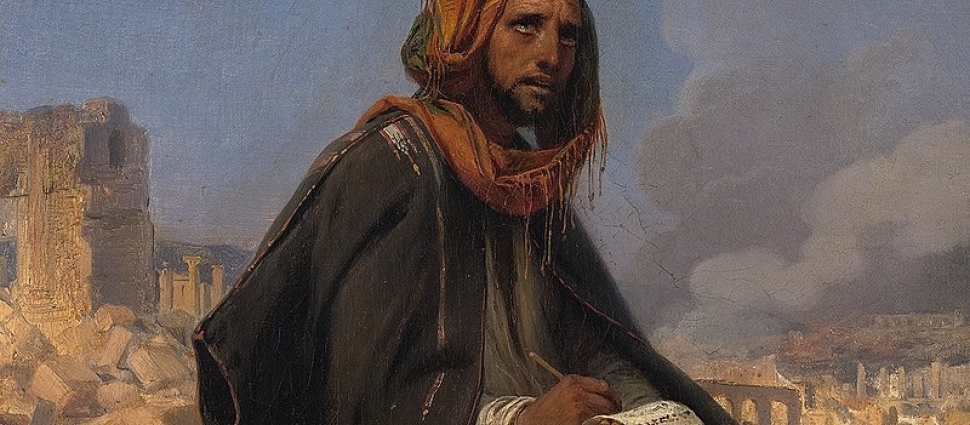Majoring in the Minors: Zephaniah

The Book of Zephaniah unfolds during the days of Josiah. Who can forget those days? The pro-Assyrian party likely put this eight-year-old boy on the throne to placate the ruling nation at that time. However, the pro-Assyrian party in Judah did not factor God into the equation. Why would they? How hard was it to lead an eight-year-old? But when this eight-year-old turned sixteen he got religion. Or, perhaps better to say, religion got him! And by twenty years of age, he purged Judah of her idolatry. What is more, his tombstone bore a simple inscription, “He did not turn aside to the right or to the left” (II Kings 22:2). This was a Deuteronomic virtue (5:32) given to Josiah alone.
The Need of the Hour
It was during the reign of Josiah that Hilkiah the high priest found the Book of the Law during repairs made to the Temple. It was a momentous time for when the Book was read to the king, he tore his clothes and repented before God. During these days there was a prophet in the land named Zephaniah. And not only did he faithfully foretell what would happen to the people of God, he brought the Scripture to bear upon God’s people. This is obvious from the book of Zephaniah’s prophecy. For example, there are parallels between Zephaniah’s prophecy and the Book of the Law.[1] The prophet was utilizing this newly discovered book.
But there was something else, God said he was going to “sweep sweep” away man, beasts, birds, and fish (Zeph 1:3). Ironically, this is a reversal of what we read in creation. God created fish, birds, beasts, and man and he will sweep them away in a great reversal. What is more, there is covenantal language being used here. The prophet says that God will cut them off (Zeph. 1:3). The covenant had been transgressed by Israel and God was bringing about the curses of the covenant.
The Pride of the People
Sometimes people are not aware of their own issues. This is often the case. Several times after a worship service I have been told, I wish so and so would have heard that message. However, unless the Spirit convicts so and so they will likely wish that another so and so had heard it! That was the way of it with the pride-filled people of Judah (Zeph. 2:10, 15). What is more, it was top to bottom. The problem extended from the priests down the average joe.
So, the prophet did something sneaky. He described them without naming them. In the first five verses of Zephaniah 3, the prophet enumerates twelve sins (Twelve, get it?) of this people under God’s condemning wrath.
- Rebellious
- defiled
- Oppressors
- Does not listen
- Accepts no correction
- Does not trust the Lord
- Does not draw near to God
- Officials are like roaring lions
- Judges are like wolves
- Prophets are treacherous
- Priests profane the holy
- They are violent
By the middle of the list, the identity of the nation is unmistakable. Judah, the people of God, are in the sites of God’s wrath.
The Foreshadow of Christ
In the latter part of Zephaniah, we are told that the Lord is within this people, He is in their midst, and He will save them. What I want you to notice is how the Lord, who is our righteousness, is pictured in the prophecy. Notice that back in chapter one we were told that judgement would come, and it would start at the top, but the top is listed as “the officials and the king’s sons.” The King is conspicuously absent from this list. In fact, in the list of twelve sins the officials, judges, prophets, and priests are all mentioned, but the king is not.
What is more, one of the besetting sins of Judah and her leaders was their unwillingness to inquire of the Lord (Zeph. 1:6). However, in II Kings 22:13 and 18 we are told that Josiah was eager to have the priests inquire of the Lord. Indeed, Josiah is the righteous one who is the shadow of the Righteous One to come. And praise be to God that the Righteous One has come and His name is Jesus, for He saves people from their unrighteousness.
Jeffrey A Stivason (Ph.D. Westminster Theological Seminary) is pastor of Grace Reformed Presbyterian Church in Gibsonia, PA. He is also Professor of New Testament Studies at the Reformed Presbyterian Theological Seminary in Pittsburgh, PA. Jeff is the Editorial Director of Ref21 and Place for Truth both online magazines of the Alliance of Confessing Evangelicals.
[1] Zeph. 1:13 and Deut. 28:30; Zeph. 1:13 and Deut. 28:39; Zeph. 1:15 and Deut. 28:53, 55, 57; Zeph. 1:15 and Deut. 4:11; Zeph. 1:17 and Deut. 28:29; Zeph. 1:18 and Deut. 32:21-22.





